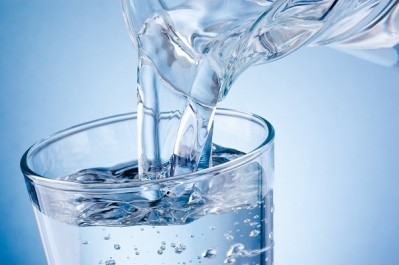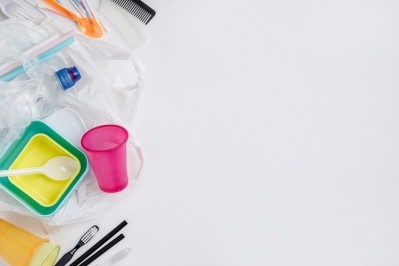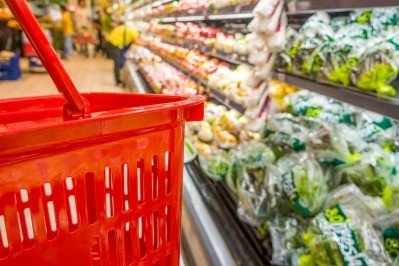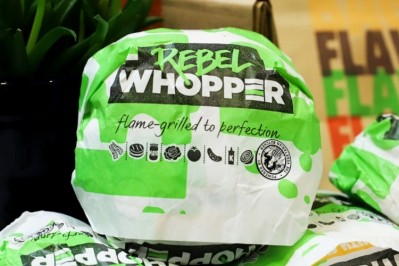‘We are working to ensure packaging doesn’t become waste’: Coca-Cola, Nestlé, PepsiCo and Unilever hit back after damning plastics report
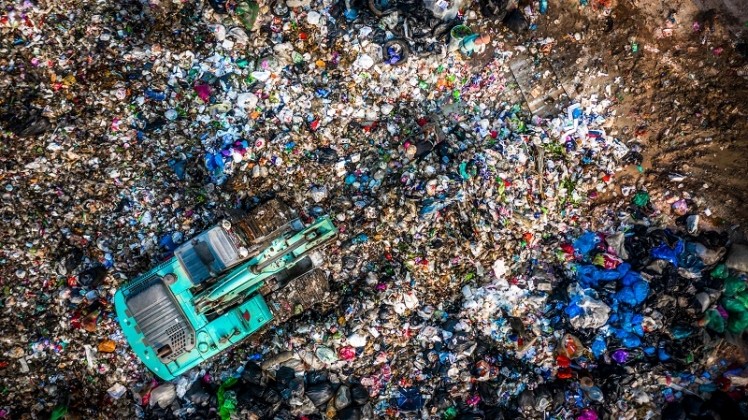
Coca-Cola, Nestlé, PepsiCo and Unilever are responsible for half a million tonnes of plastic pollution that is burnt or dumped per year in just six developing countries, according to a report.
The research focussed on plastic pollution in six countries - Brazil, China, India, Mexico, Nigeria and the Philippines.
Tearfund, an international relief and development agency, said that plastic burnt by the world’s biggest consumer brands creates emissions equivalent to 4.6 million tonnes of CO2 – the same as two million cars on UK roads a year.
The report, part of the organisation’s Rubbish Campaign, said Coca-Cola had the greatest impact, with 200,000 tonnes of plastic burnt or dumped each year in the countries. PepsiCo had 137,000 tonnes, followed by Nestlé’s 95,000 tonnes and Unilever’s 70,000 tonnes.
The report said the companies must urgently switch to sustainable refillable and reusable packaging alternatives instead of single-use plastic packaging and sachets.
Dr Ruth Valerio, director of global advocacy and influencing at Tearfund, said: “These companies are selling plastic in the full knowledge that it will be burnt or dumped in developing countries: scarring landscapes, contributing to climate change and harming the health of the world’s poorest people.”
Dr Valerio added: “At present, Coca-Cola, Nestlé, PepsiCo and Unilever make little or no mention of emissions from the disposal of their products or packaging in their climate change commitments. These companies have a moral responsibility for the disposal of the products they continue to pump into developing countries without proper waste management systems.”
The report noted demand for change from consumers in developing countries: in a new survey of 2,000 adults aged between 18 to 64 in India conducted for Tearfund by Savanta ComRes, nine in ten (90%) respondents said they would be likely to buy their products in refillable and reusable containers as opposed to throwaway containers if it led to significantly less plastic pollution in their community and the cost was the same.
Campaigners welcomed the report. Sian Sutherland, co-founder of A Plastic Planet, said the report highlighted the ‘immorality’ of big consumer brands ‘pushing plastic to developing countries with little infrastructure to deal with the waste these products create’.
She told FoodNavigator: “We must ask ourselves why is this any different to shipping our own plastic waste to these countries apart from the fact we are disguising it as ‘giving people choice to buy our products’.
“The impact of plastic on human health is now undeniable and is seen first-hand in communities who live on the worlds waste - the plastic pickers and those close to burning dumps. Plastic and the thousands of chemicals used to make it are toxic to our air, water and soil.”
Sutherland claimed that making products recyclable was pointless when only a ‘tiny fraction’ of the world’s plastic is ever recycled ‘once rarely twice’.
“Refill and reuse models are the future. Waste does not have to be a prerequisite of modern society. Surely we realise now one man’s trash is everybody’s future health problem. This is the time to respect and value nature more than any other. Destroying our ecosystem for profit has to stop.”
Food and beverage companies are working to ensure packaging doesn’t become waste
But the companies in the report told FoodNavigator they were taking steps to reduce virgin plastic content in their products and investing in infrastructure designed to increase recycling rates.
A PepsiCo spokesperson said: “Changing the way society makes, uses, and disposes of packaging is important and requires immediate and collective action. At PepsiCo, we want to help build a system where packaging never becomes waste. That’s why we’re working to reduce the amount of plastics we use and have set a target to, by 2025, decrease virgin plastic content across our beverage business by 35%.”
PepsiCo said that between July 2018 and 2019 it had pledged over $51 million to global partnerships designed to boost recycling rates to support a circular economy. It is also investigating design innovations to reduce the need for cans and bottles, such as its SodaStream NPD, which the company estimates will save nearly 67 billion plastic bottles through 2025.
A Coca-Cola spokesperson told us it was committed to ensuring its packaging was sustainable. “We don’t want to see any of our packaging end up where it shouldn’t and, more specifically, our goal is to see it all recovered and recycled. We recognize that we have a responsibility to provide solutions that make plastic waste a thing of the past.”
The company’s World Without Waste goals sees a commitment to collecting a bottle or can for each one sold by 2030, with the aim to ensure that every plastic bottle contains at least 50% recycled plastic by 2030.
The spokesperson added: “We believe that plastic still has a role to play as a valuable resource which can be used again and again. However, we’re also focussed on increasing our use of returnable and refillable packaging. Currently, our operations in Mexico and Brazil use over 20% refillables, Nigeria is over 30%, Philippines is over 40%, and Tanzania is over 50%, which are highlighted in the Tearfund report.”
Nestlé said it was committed to making 100% of its packaging recyclable or reusable by 2025, noting that in January this year it announced an investment of up to CHF 2 billion to lead the shift from virgin plastics to food-grade recycled plastics and to accelerate the development of innovative sustainable packaging solutions. “With our investment, Nestlé will create a market for food-grade recycled plastics, which does not currently exist on industrial level for plastics other than PET,” it said.
“We are working hard to eliminate non-recyclable plastics and invest in innovative, alternative delivery systems, including bulk, reuse and refill options. Our Nescafe, Mile and Coffee Mate brands are already available via dispensers in many countries around the world for our out-of-home business.”
It noted that its new subscription home delivery service for foods and household goods with reusable packaging, called Loop, further emphasised its commitment to a circular economy.
Plastic has a place, but not if it leaks into the environment
Unilever added that plastic has its place in delivering products safely and efficiently to consumers around the world, but said ‘the place for plastic is not in the environment’.
A spokesperson told FoodNavigator: “Our plastic is our responsibility and that’s why we are taking radical action at all points in the plastic loop.
“Plastic reduction is a critical part of the solution, and so we’ve committed to halve our use of virgin plastic in our packaging in just five years and reduce our total use of plastic by more than 100,000 tonnes. This demands a fundamental rethink in our approach to packaging and products, and as we speak, we’re piloting different reuse and refill formats across the world, so we can test, learn and scale these solutions.
“In addition, we’ve committed to help collect and process more plastic packaging than we sell by 2025 working with governments, NGOs and local community groups, to keep plastic in the economy and out of our rivers, streets and oceans.”
